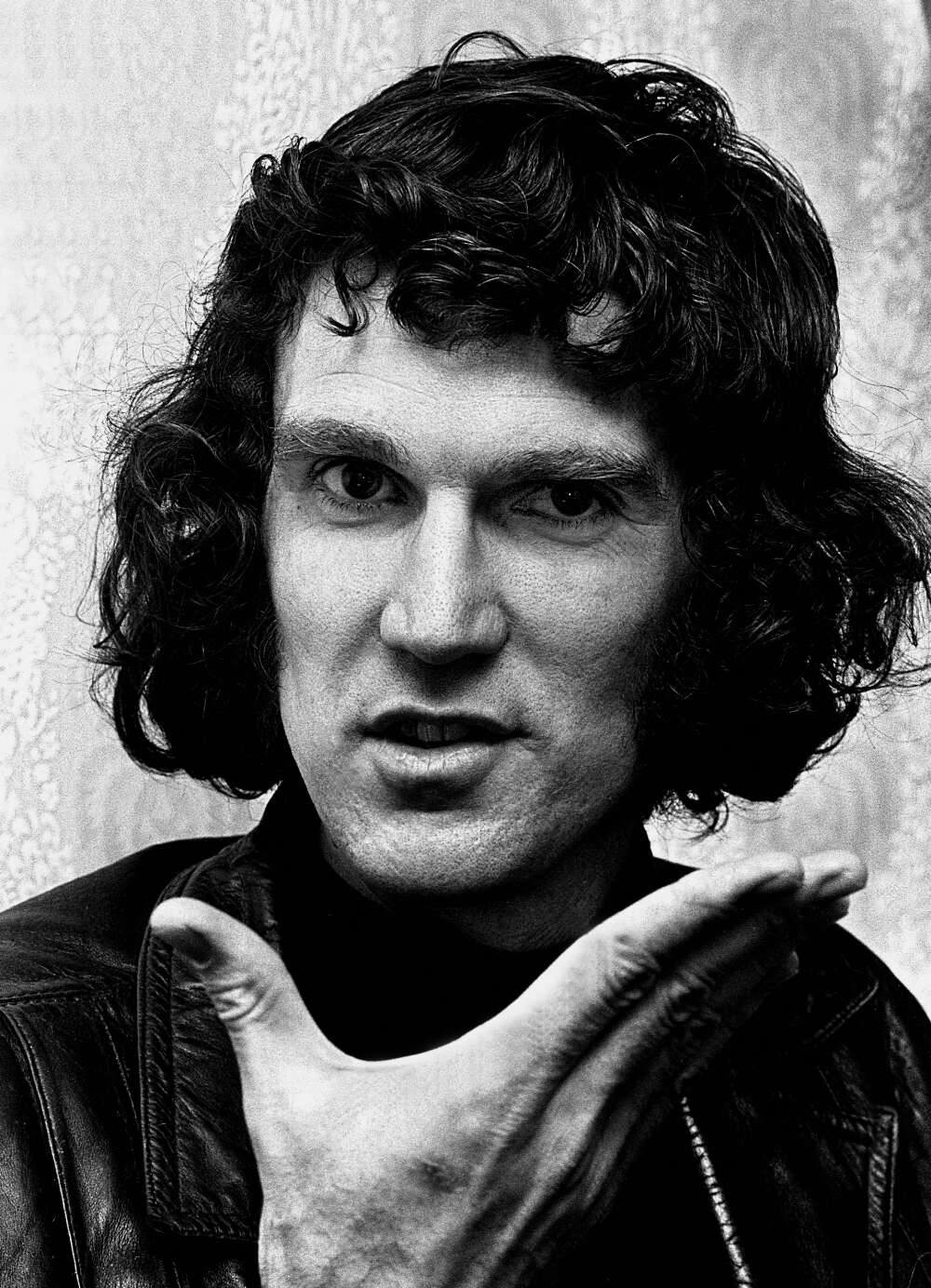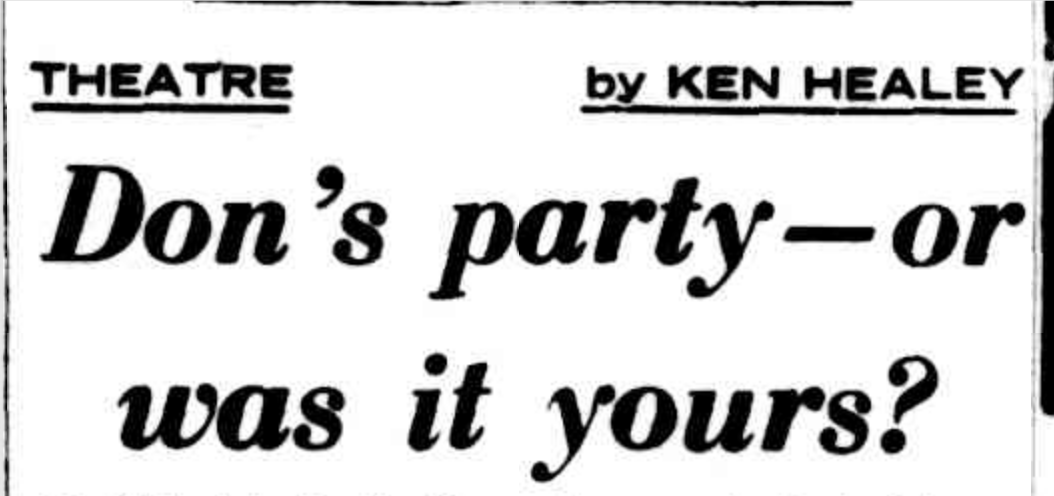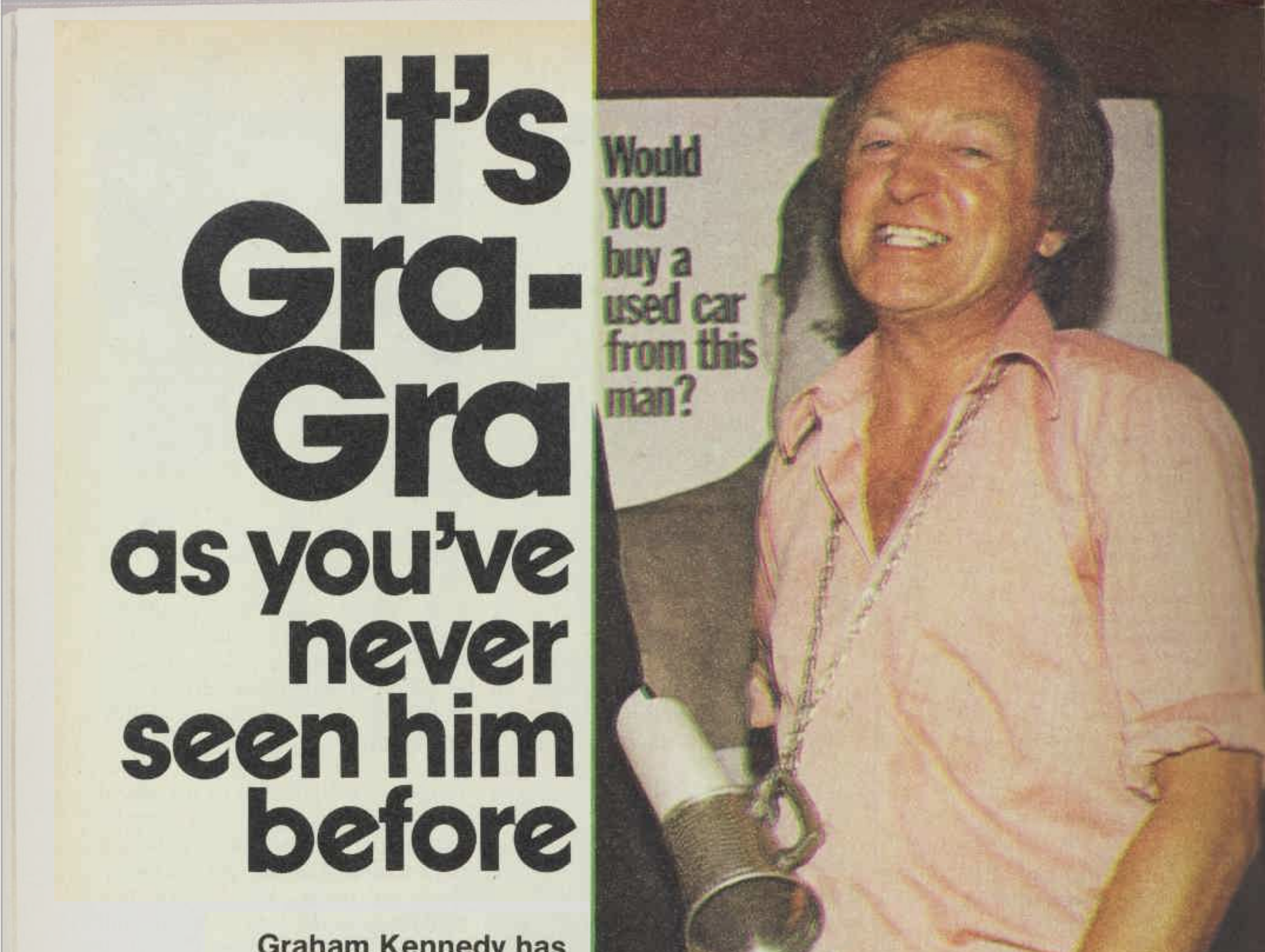Don's Party
Trove is a digital repository of all things Australian. It holds artefacts, curiosities and stories from Australia’s cultural, community and research institutions. With over six billion digitised items in Trove, there’s a wealth of information available on almost any topic.
Digitised newspapers are a great insight into the hot topics of society, politics and culture at a given point in time. Newspapers often contained reviews and discussions of new pieces of media, from books and magazines to musicals and theatre.
The National Library’s current exhibition – On Stage: Spotlight on our Performing Arts – showcases Australia’s performing arts history. With Trove, learn more about Australian writers, musicians and performers and their lasting impact on the industry at home and abroad.
About David Williamson
So much of Australia’s artistic and cultural history can be found in the digitised newspapers and gazettes available in Trove, including old reviews for cinema, theatre shows and musical performances. Newspaper coverage provides a unique avenue to understand how new works were received when they were first performed. One such work is David Williamson’s Don’s Party.

David Williamson is one of Australia’s best known living dramatists. He came to playwriting having studied engineering and psychology, a background that provides him a different lens than many writers. His knowledge of psychology is evident in how accurately he examines a character’s motivation in his writing. His plays are iconoclastic and, like any good satirist, he mocks all sides of politics.
Williamson sees foibles in everyone, but he also sees their humanity. His plays are incisive. They peel back their characters’ veneers in a way that is surprising, can be shocking, and is often illuminating. Many of his plays, including Don’s Party, are also very funny. Williamson’s writing credits include Travelling North, Emerald City, The Removalists, The Club, and he was a co-writer of the screenplays to Gallipoli and The Year of Living Dangerously.
Positive reception for Don’s Party
Don’s Party is a satire, verging on farce, which unfolds during a dinner party on the night of the 1969 Australian federal election. The guests have gathered to celebrate what they presume will be a Labor Party victory.

Reviews of the first performances of Don’s Party give a sense of how early critics and audiences responded to the play. Ken Healey’s review, published in the Canberra Times in 1973, was titled ‘Don’s party – or was it yours?’. Healy describes the play as ‘wickedly articulate’ in its satire:
‘David Williamson builds good comedy on the basis of an infallible ear for the Oz vernacular and creates superb theatre by orchestrating his dialogue from elements that trip from the tongues of likeable fits and misfits … ‘
A very positive review of Don’s Party by Gillian Oxford was published in the Canberra Times a year earlier in 1972. Oxford describes it as a provocative play that ‘faces us, the identifying audience, with the urban stagnation we know and must explain to satisfy our own consciences’.
Controversy and criticism
With its vulgarity and satirical observations of Australian society, Don’s Party certainly created some controversy in its time. Various members of the wider community responded to the play with less enthusiasm.

An article titled ‘Clerics object to Don’s Party’ provides an example of a lukewarm reception. Published in the Canberra Times in 1980, the article details the objections of clergymen in Sydney who took issue with the play’s use in secondary schools due to its ‘foul language’.
The Australian Jewish News also carried a damning review in a 1989 issue. Colin Golvan named the play ‘a tedious bore’ and finds that ‘out of its original context, [the play] looks like a fairly boring booze-up, with sexual frustration as the central pre-occupation’.
A review in the University of New South Wales’ student newspaper, Tharunka, rallies against negative reviews:
‘To write [Williamson’s] play off as being a superficial gibe is to seriously misinterpret the play … if you want to go along and laugh heartily you may do so but be careful because just like all tragi-comedies you may find yourself laughing when the thing you ought to fear most of all is close enough to be threatening’.
Productions at home and overseas
Searching Trove also elicits articles about interesting and unusual productions, including a Canberra theatre-restaurant production at the Parkroyal Motel that was directed by Joe Woodward. Reports about Woodward’s production appeared in issues of the Canberra Times from 1980:
‘The play will be done in the round so that eaters and drinkers can feel that they are party of the party … hosts and hostesses to greet the guests, waiters quick to offer drinks, balloons to blow up and even someone to blow them up for you’.
Again in the Canberra Times, in 1975, there’s a brief mention of the play’s first performances overseas, in London. It was directed by Michael Blakemore and starred the Australian actor Ray Barrett, who appeared in films such as The Chant of Jimmie Blacksmith (1978), Where the Green Ants Dream (1984) and Australia (2008).
Don’s Party on the big screen

Like many successful stage plays, Don’s Party found further success in a cinematic adaptation directed by Bruce Beresford. Former film critic for the Sydney Morning Herald, Susie Eisenhuth, commented on lead actor Grahame Kennedy’s performance in a 1976 issue of the Australian Women’s Weekly:
‘It’s as you’ve never seen him before … This is a rather messy little man sporting baggy bermudas, open sandals and half-mast knee socks over spindly winter-white legs. With a grunted “G’day” to his host, he lopes into the room, toting a carton of beer in one arm and a flagon of red in the other, while in between a beer mugs swings on a chain round his neck.’
Trove is an incredible resource for researchers looking to explore Australian theatre history through the voices of those present at the time. It provides a unique social and cultural insight into the reception of new works, especially those like Don’s Party that have become iconic examples of great Australian writing.
Resources are available to help you discover new things in Trove’s newspapers – watch this webinar to learn search strategies and navigation skills.
Want to get involved? Find out how you can contribute to Trove to make it better for everyone.
By Konrad Crnkovic